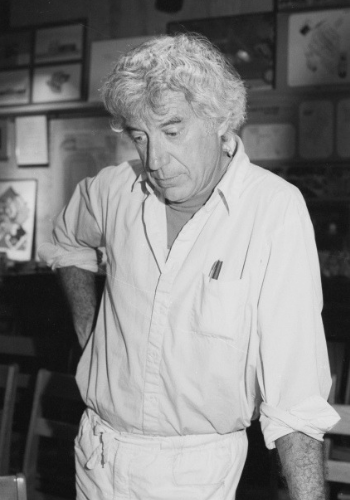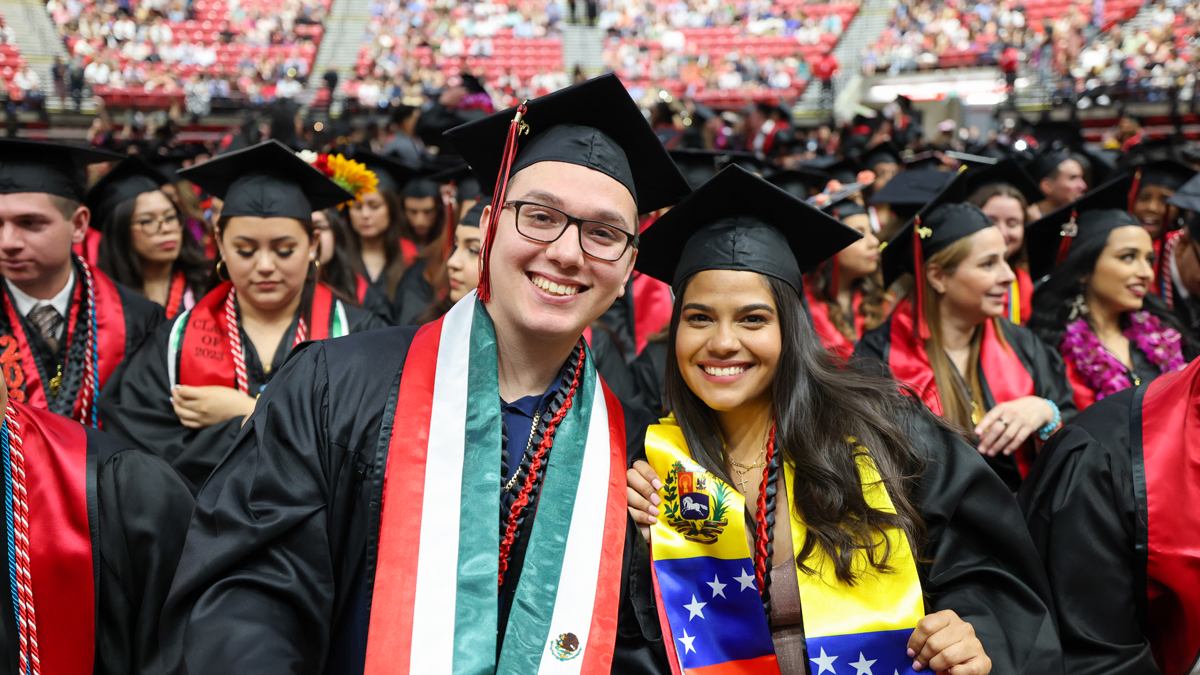SDSU Downtown Gallery Honors Professor Emeritus and Architect Eugene Ray

The SDSU Downtown Gallery will honor architect and SDSU Professor Emeritus of Environmental Design Eugene Ray with an exhibition showcasing his work. Radiant Architecture: The Visionary Work of Eugene Ray will run from Aug. 3 to Oct. 6, 2019.
Ray served as a professor of environmental design at SDSU for 27 years, beginning in 1969.
Best known for his former La Jolla home and studio called The Silver Ship, Ray sees architecture as a conduit for creating community and considering possibilities that are sustainable and ecologically friendly. His unique methodology blends together theory, practice, and spirituality to arrive at architectural solutions and design. Ray points to a UFO encounter he had as a child as a significant source of inspiration for his work.
The exhibition, commemorating the 50th anniversary of when he arrived at SDSU, is comprised of many rarely seen original hand-drafted architectural renderings and plans, ephemera, collages, and projection sequences, illustrating Ray’s visionary way of viewing the universe and urban space. This selection of works was drawn from SDSU Library’s Special Collections and University Archives, which will house Ray’s archive as part of its holdings, making his life’s work available for educational and scholarly research purposes.
The exhibition will also spotlight the work of some of Ray’s international contemporaries whom he invited to lecture in his classes during his tenure at SDSU, including Paolo Solari and Bruce Goff.
“Radiant Architecture: The Visionary Work of Eugene Ray is not only a retrospective exhibition of an important architect and design educator of our time, but also a reminder of the great prospects architecture, education, and human imagination hold for the brilliant future,” said Junichi Satoh, Director of the Interior Architecture Graduate Program at SDSU.
David Fobes, an instructor in SDSU’s School of Art and Design and one of the curators of the exhibition, studied Environmental Design under Ray from 1975 to 1978.
“The direction and vision of Professor Ray’s courses and his own research were a welcome shock to my senses and creativity. He was able to show not only myself but my student cohort a new realm of the possibility of design as an instrument of human well-being on ‘spaceship earth,’” Fobes said. “Eugene has remained a mentor and friend for the last forty years. His influence on my design thinking and approach to teaching has been tremendous. It has been a great insight and pleasure to review all of the many documents and drawings that are the life’s work of creative genius.”
Located at the SDSU Downtown Gallery at 725 W. Broadway, the free exhibiton will be open to the public from Aug. 3 until Oct. 6, 2019 from 11:00 a.m. to 4:00 p.m. except for Tuesdays and Wednesdays.
The exhibition will be participating in the Downtown at Sundown series on Aug. 15 from 5:00 p.m. to 8:00 p.m. Additionally, a special reception with Eugene Ray will be held at the gallery on Sept. 19 from 5:00 p.m. to 8:00 p.m.
More information about Eugene Ray and his work can be found on his blog. For more information about the event, contact Chantel Paul at [email protected].
Radiant Architecture: The Visionary Work of Eugene Ray is curated by Lecturer David Fobes, Professor Arzu Ozkal, Professor Junichi Satoh and organized by the SDSU Downtown Gallery in collaboration with the SDSU Library’s Special Collections and University Archives. The exhibition and events are sponsored by RNT Architects, Yuman Young, the School of Art + Design, the College of Professional Studies and Fine Arts, and Arts Alive SDSU. Additional support is provided by the San Diego State University Art Council Ambassadors.
The content within this article has been edited by Lizbeth Persons.

